In recent years, more attention (through the result of many compelling studies) has focused on the impact of the coach-athlete relationship on an athlete’s performance. Research from the 2008 Canadian Olympic Study definitively showed that coach-athlete relationships significantly impact athlete performance. The study was conducted and written by Penny Werthner as part of the Canadian Olympic Study, ‘Own the Podium’.
This research was undertaken after the 2008 Summer Olympic Games in Beijing, China. The purpose of the study was to identify the factors contributing to a successful and in some cases, unsuccessful performance from both the coach and athlete’s perspectives. The study consisted of interviewing 27 Olympic and Paralympic athletes and 30 Coaches, these interviews were then analyzed and five key themes emerged.
Five Key Themes for Success
- Athlete self-awareness
- Strong coach-athlete relationship
- Optimal training environment
- Strong financial and human resources support system
- Excellent management of the Olympic environment
Of these five critical themes, the strong coach-athlete relationship was viewed as the most crucial and non-negotiable factor in winning an Olympic Medal or producing a personal best performance.
Within the interviews, each of the 27 athletes, elaborated on how they developed a strong relationship with their coach and how their coach created a productive environment for them to be successful in. Below are verbatim comments the athletes made about the role and relationship with their respective coaches.
“We had the best coach, with a great deal of international experience. He was skilled technically, but he kept it simple.”
“My coach is like a mentor to me. We have a good relationship, and are open to learning from each other.”
“We have complete confidence in our coach.”
“With my coach, we knew exactly what I needed, physically, technically, mentally—our motto was ‘Execute excellence.”
“I have a great coach.”
“The key pieces of success were a very good coach and very good training as a result of good coaching and a good support team.”
The Importance of the Coach-Athlete Relationship
Due to this emergence in the study of the coach-athlete relationship being a crucial factor in the athletes’ successful results, the interviewer began to study this further by interviewing some of the best national team coaches in Canada.
The coaches and athletes who took part in this round of interviews were:
Xiuli Wang: National Long Track Speed Skating Coach, a former Olympic speed skater for China, and a two-time Olympic Coach for Canada.
Clara Hughes: Canadian Cyclist and Speed Skater, winner of two bronze medals at the 1996 Olympic Games, the 5000m bronze medal at the 2002 Olympic Winter Games, and a gold medal in the 5000m and silver in the Team Pursuit at the 2006 Olympic Winter Games.
Melody Davidson: National Women’s Ice Hockey Coach.
Hayley Wickenheiser: Canadian Ice Hockey Player, a silver medalist at the 1998 Olympic Winter Games and gold medalist at the 2002 and 2006 Olympic Winter Games.
Yi Hua Li: National Diving Coach and former Olympic diver for China.
Émilie Heymans: Canadian Diver, the winner of silver and bronze medals in 10m synchro at the 2000 and 2004 Olympic Games, and the 10m silver medalist at the 2008 Olympic Games.
Expanding the dialogue slightly, the researcher also spoke with Elaine Dagg-Jackson, National Women’s Coach for the Canadian Curling Association and Coach at the 2006 Olympic Winter Games, about how she created effective relationships with the 16 Coaches and teams who are currently part of the national program.
During the interviews, the coaches each elaborated on how their attention focuses on creating strong coach-athlete relationships. Noting that each of them had a proven track record in the sporting world with their exceptional technical skills and sports specific knowledge about tactics and training methodology, so what became a determining factor in furthering their athletes’ success was how approached and emphasized the importance of communication and trust.
A number of the athletes spoke of the open-mindedness of their coaches, and their willingness to listen to what they each needed and thought. They pointed out that their coaches were also open-minded in the sense of being willing to bring other experts into the team when needed, and that they cared for them not just as athletes, but as unique people.
Coach-Athlete Relationship: Xiuli Wang and Clara Hughes
The following is a direct quote from the article originally written by Penny Werthner about her interview with Xiuli Wang and Clara Hughes
Xiuli: “At the time of meeting Clara, I was still just an Olympic Oval Coach, and she came to me asking for technical help. We worked well together really quickly. She was very fit and she had lots of sport experience and, of course, success with medals in Olympic cycling, but now she was changing sports. She needed help with skating technically well. She was asking lots of technical questions, but they were the right questions… I was straight with her. I told her the truth, and I got on the ice with her to show her how to skate well.” Xiuli felt that they worked very hard but she also thought that the difficulties were eased because Clara was already an accomplished athlete; she knew how to work hard and she was more than willing to do so. Xiuli: “So many Canadian athletes need to be told six things that they are doing right before you can tell them what they need to work on, and with Clara I didn’t need to do that—she was ready to work.”
“Clara told me that when she made her decision to try to make the national speed skating team, she was placed at first with the national team, but she felt that she was not getting the technical help she needed. “I knew what it took to be successful. I demand a lot from myself and of other people, and what Xiuli said made sense to me—she had the ability to teach me the technique—and that is what I needed. She was so calm, and so patient with me—she pushed me too, but she had the patience to teach me. She would say, ‘This is going to take time; let’s see what we can do.’ After seven weeks of training, I made the national team, and after 16 months I had an Olympic bronze medal. I wanted to keep Xiuli as my Coach, and I had to fight for that. Xiuli and I have done this together. She is such a great competitor, so motivated herself, so hungry, it makes me look at myself. Her ability to articulate technique is incredible, and she has a big heart. I never feel alone. I share my successes with her.”
Coaching Styles and Athlete Centered Coaching
From our perspective on Athlete-Centered Coaching, Xiuli and Clara’s coach-athlete relationship is a great example of how a coach was able to clearly and consistently display three of the four different coaching styles within the CoachDISC Model.
In particular, Coach Xiuli utilized the Dominant Coaching style to address the skill deficiencies naturally apparent in an athlete changing sports. As well, Coach Xiuli showed an excellent example of the Steady style of coaching by creating an environment where the athlete felt they could ask questions within a framework of two-way, open communication. Finally, the Influencing style of coach is demonstrated by the comments Clara makes about Xiuli having a big heart and being supportive of her at all times.
This transition between the different styles of coaching is most often challenging for a coach to do, but almost always, when they achieve this balance for the athlete at the right time and place, it builds a great coach-athlete relationship where the athlete feels their needs are being met. This in turn makes the athlete feel valued, unique, and important.
Coach-Athlete Relationship: Melody Davidson and Hayley Wickenheiser
The next interview conducted, as Penny Werthner writes, was between Melody Davidson and Hayley Wickenheiser. Melody is a National team Coach and as such discusses some of the impacts of how she builds individual relationships with her players.
“In a team sport, it is always a work in progress, and the challenge is that each athlete needs something different. My personal challenge, as a coach, is that I am internally motivated, and that can lead to frustration for me, especially when an athlete does not appear motivated or is not working hard. Perhaps that is why Hayley and I work so well together; I have known her since she was 12, and we are very similar. It’s ‘Let’s get the job done.’ We are comfortable with each other; she can come to me with suggestions. We talk about the game.” According to Mel, communication is key, but, she said, “It is hard for me. I know myself well and I am not a big people person, but I work on it each day. I set up meetings with each athlete, I allow them to speak first, I make sure I am around, available, I try to pay attention to body language, and I make sure I say something to each player on the ice. I can be blunt, honest, but I really do care. I want each player to get better. I tell them, ‘Make our selection decisions very difficult.’”
Hayley said that her relationship with Mel “is all about mutual respect. I admire her passion and dedication to the game. She knows the game; she loves the game; she is giving it everything she has—you respect that. And she values my opinion. I have been in the program for 16 years, I am mature, and I can get her attention. We have the same goal. When I bring issues to the table, she is not hard-headed. She doesn’t have much ego. She listens, she says she will look at it, or she gives me her reasons for not changing something. We are both good at letting it go; sometimes we simply agree to disagree. But she is always open and receptive, if you show you are accountable and professional. And she is very organized.” Interestingly, Hayley felt that Mel was good at communicating. “She is good at communicating the ‘why’. Women want to know why, or they tend to jump to conclusions, and Mel is good at answering that. But coaches have a tough job; we, as athletes, want to know that the coach has control. It’s a fine line.”
Looking again from an Athlete-Centered Coaching perspective, this relationship is one where the coach is adaptable to the needs of their athlete. Their Coaching Style varied from being able to be Dominant when required, to Steady with a questioning, listening approach, and two-way communication, to Influencing with encouragement and praise. Melody’s coaching approach also includes the Conscientious style, with Hayley noting her organization, desire to provide details and reasoning behind decisions when required.
This interview was also a great example of how to coach individuals within a team structure. Each individual is given personal attention by way of one-on-one meetings where they are encouraged to do the talking first. Finally, Coach Davidson demonstrates excellent self-awareness when she refers to the fact she is not naturally people -orientated and communication focused. Yet this is something she adapts to (as she knows how important it is) and works more to be because she knows it to be critical to her athlete’s success.
Building a Successful Coach-Athlete Relationship
In Penny Werthner’s original article, three other coach-athlete relationships are examined. These relationships share similar qualities to the pairs discussed. However, I felt it was also important to highlight a simple leadership and relationship building factor which should be incorporated in any coach’s approach.
For a coach to develop a strong coach-athlete relationship, they must develop a firm emotional contract with their athletes. An emotional contract is a bond developed by mutual trust and respect for each other. This type of bond is relational in nature, that is, it based on expectations of values and beliefs held by both the coach and the athlete. Basically, if the coach says to their athlete, “Complete this workout, then you have finished the session” yet after completing the workout the coach reneges the statement, they are fundamentally damaging the development of the emotional contract, which is built on trust. While this is a simple example, the foundations of this contract is related to coaches and athletes being honest with each other, and acting based on aligned values and behaviors.
It is this strong emotional contract, which I believe sets the foundation for creating a strong coach-athlete relationship. Our article on Behavioral Predictability for Building Trust expands on this topic.
Final Thoughts on the Coach-Athlete Relationship
While Olympic Coaches are expected to have excellent technical skills and knowledge of their sport, as the original study authored by Penny Werthner states,
“Is it enough? I would strongly argue that it is not. Competitive sport, particularly at the world and Olympic levels, is so emotional and competitive that athletes also need a Coach to support them and care about them, both as athletes and as individuals. And that is what these Coaches do. They care about the athletes they coach.”
When we look at successful athletes, it can clearly be seen how and why each of the five factors contribute to a successful performance.
If you would like a copy of the original study discussed in this article, please contact us with this request. At Athlete Assessments, we’re here to provide you with excellence in service and to help you be your best. If there is anything we can assist you with, please Contact Us.
LOVE THIS ARTICLE?
DOWNLOAD YOUR FREE, PRINTABLE PDF COPY BY FILLING OUT THE FORM BELOW!
Recommended Articles
As a coach, do you have to like your Athletes? Is this a question you’ve debated in your head, or with other coaches? Well, we've got your answer!
The coach-athlete relationship, a research backed non-negotiable when it comes to getting the best and sustained performance out of your athletes.
Got a spare couple of minutes on the way to training or the weekend match? Catch the conversation between Bo Hanson and Adam Haniver on The Boxing Coaches’ Podcast. What really makes this podcast worth listening to is the way that Adam, host of The Boxing Coaches’ Podcast, asks Bo questions that surface the connections between the mechanisms and the outcomes that drive performance.
By Bo Hanson - 4x Olympian, Coaching Consultant & Director of Athlete AssessmentsAt the recent 2009 Evolution of the Athlete Conference in Brisbane Australia, Athlete Assessments conducted a survey of participant coaches from Australian and New…
As a coach ensuring your athlete is always striving to gain a 1% improvement in their performance can be one of the hardest parts of your job. At Athlete Assessments, we often speak about the importance of a quality coach-athlete relationship, and how this can be used to improve athlete performance. This article discusses how to improve emotional bonds and engagement, and how understanding these factors improves your athlete’s performance.


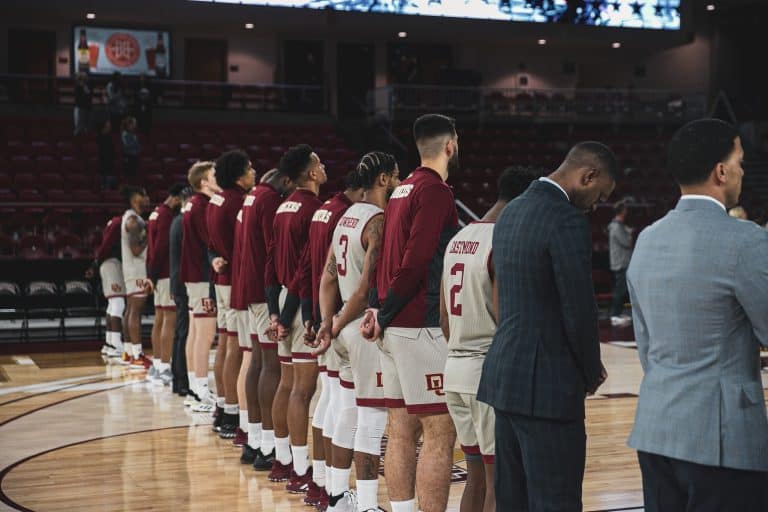
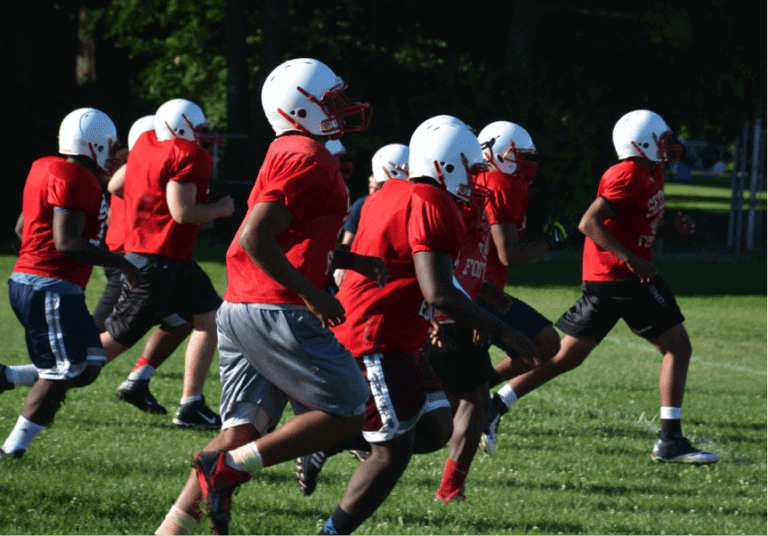
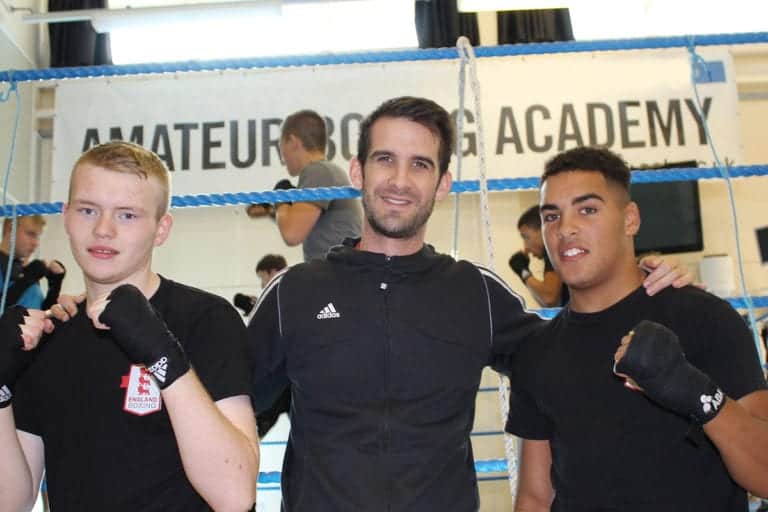
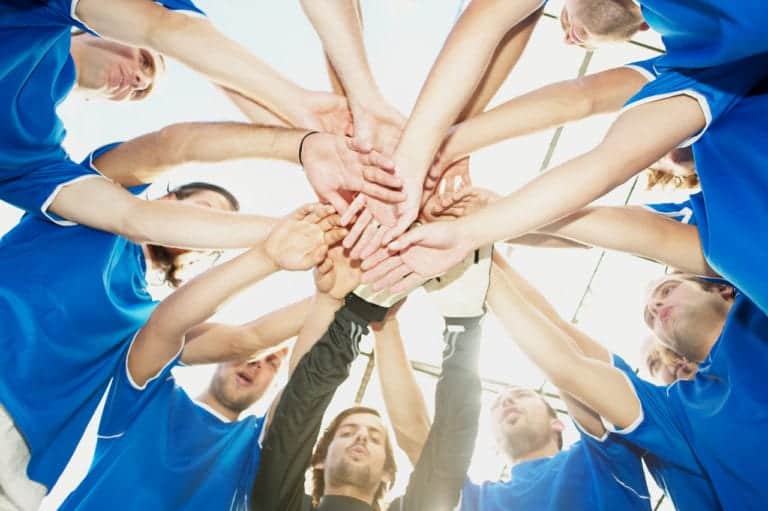
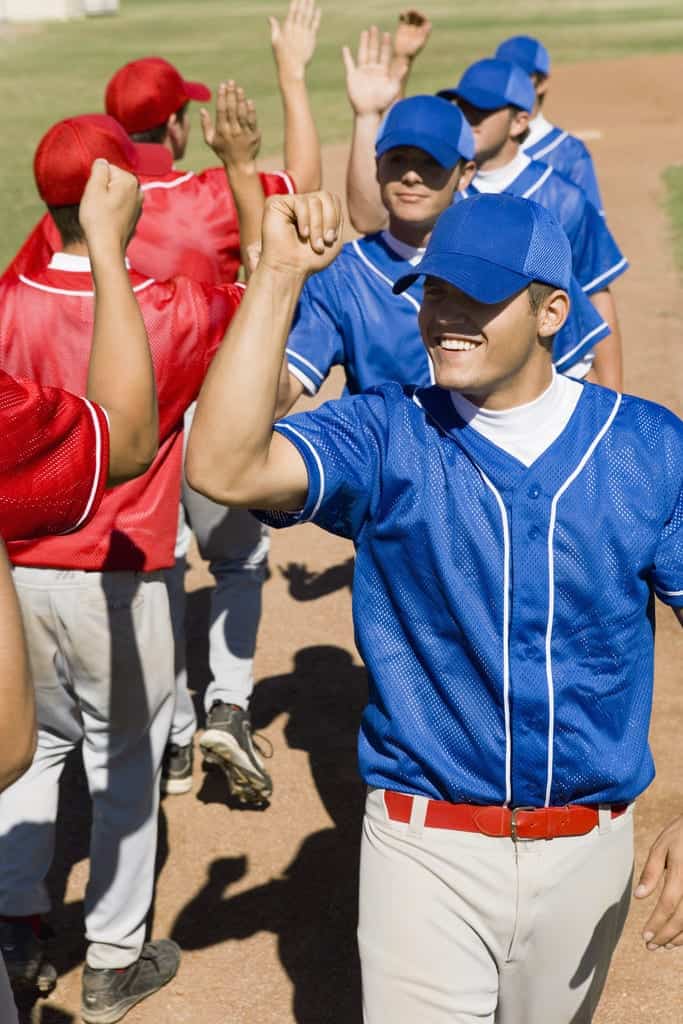
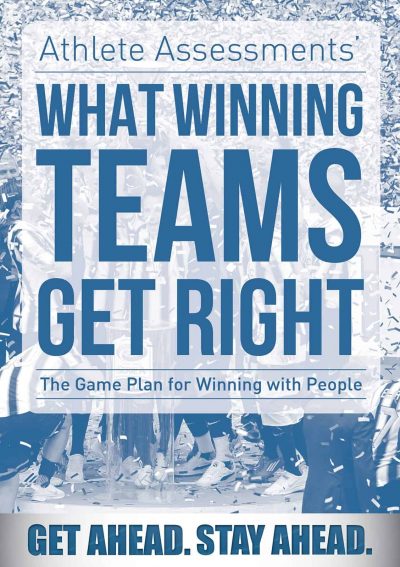


4 thoughts on “Coach-Athlete Relationships Matter (Canadian Olympic Study)”
Great article
wonderful article
Thank you, Carolyn!
Pingback: Die Trainer Athleten Beziehung - My CMS